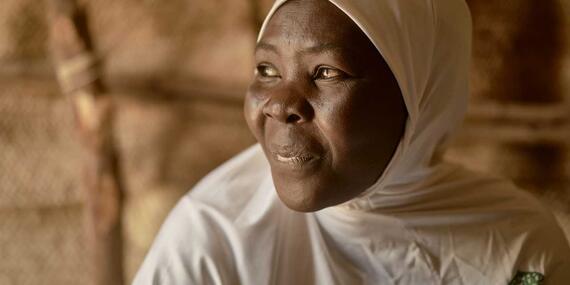Today's top news: Niger, Syria, Sudan

Niger
Our humanitarian operations are on hold while the country is already facing a complex humanitarian situation linked to escalating violence, socio-economic challenges and climate change.
The number of people in need of humanitarian assistance has increased from 1.9 million people in 2017 to 4.3 million people in 2023.
More than 370,000 are displaced within the country, which also hosts more than 250,000 refugees – mainly from Nigeria, Mali and Burkina Faso.
Violence by armed groups – both in the country and its neighbours – has increased our concerns over civilian protection and has aggravated food insecurity.
Despite a relatively successful agricultural season in 2022, and the tremendous efforts by the Government and its partners to respond to the food insecurity crisis, 2.5 million people are acutely food insecure. This figure is expected to top 3 million people during the lean season that runs from June to August.
Our US$584 million humanitarian appeal for Niger is currently 32 per cent funded.
Syria
Today, three trucks carrying humanitarian assistance from UNICEF – including nutrition and sanitation supplies – crossed into north-west Syria from Türkiye through the Bab al-Salam crossing.
OCHA staff today carried out a monitoring mission. They visited projects to support shelter and education funded by the Syria Cross-Border Humanitarian Fund in Al Bab, some 40 km north-east of Aleppo.
Meanwhile, the humanitarian response continues inside north-west Syria. As we mentioned earlier, prior to the expiration of the cross-border aid authorization on July 10th, UN agencies had prepositioned humanitarian aid supplies, which are being dispatched and distributed.
Sudan
OCHA in Sudan has warned that disease outbreaks that had been under control before the conflict erupted are now increasing.
This is due to the disruption of basic public health services, and the diseases include malaria, measles, dengue and acute watery diarrhoea.
As the rainy season begins, these outbreaks are likely to claim more lives unless urgent action is taken to control their spread.
This is increasingly difficult due to shortages of medicine and medical supplies reported in some states, despite our health partners’ ongoing efforts to provide these critical items.
And sadly, health facilities and workers in Sudan continue to be targeted. The World Health Organization says that as of yesterday, there have been 53 attacks on health care reported in Sudan since April, leading to 11 deaths and dozens of injuries.
